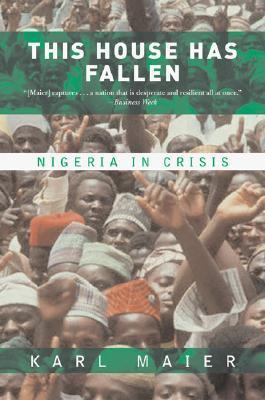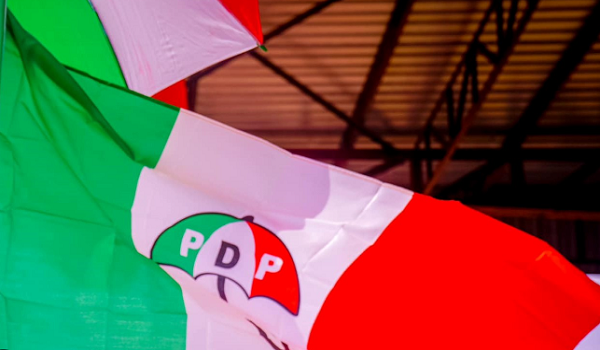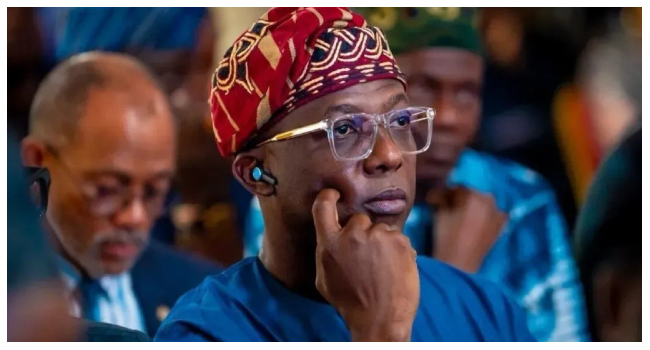BY
Evans Ufeli Esq
Karl Maier’s This House Has Fallen confronts Nigeria not as an abstraction of maps and statistics but as a lived, intimate ruin- a home whose cracks mirror a nation’s fracture lines. The novel’s central metaphor -the house that gives way - is less about a single catastrophe than about the slow, cumulative erosion of trust, institutions, and shared meaning. By tracking the disintegration of family, neighborhood, and civic life, Maier raises a fundamental question that runs like a fault line through modern Nigerian history: what, exactly, holds this country together, and can those bonds be remade?
At the level of plot, This House Has Fallen follows characters who negotiate daily survival amid collapsing public services, extractive elites, and the corrosive logic of patronage. Their domestic disputes- over money, status, memory, and allegiance- shift easily into the political: a landlord’s whims echo a governor’s decrees; village quarrels stand for regional resentments; a younger sibling’s emigration becomes a parable about abandonment. This compression of the national into the personal is Maier’s first move: the novel insists that to understand Nigeria’s macro problems we must look at the micro spaces where loyalties are formed and broken.
The “fundamental question” Maier poses is capacious and unsettling. On its simplest level it asks: Can Nigeria remain a sovereign polity when its glue- civic institutions, shared civic identity, legitimate governance- has been eroded by corruption, violence, and economic precarity? But the question is also ethical and imaginative: what kind of political community ought Nigeria to be? Is the country a contractual aggregation of ethnic blocs, a patrimonial network of patron and client, or a pluralistic civic space capable of mutual recognition and rights-based citizenship? Maier’s answer is not delivered didactically; instead, the novel stages the consequences of treating the polity as the first two options and the costs of failing to become the third.
One axis Maier explores is the legacy of colonial statecraft and the arbitrary lines it drew. The house’s foundations were laid in haste and left uncalibrated: divergent legal systems, uneven development, and competing claims to resources have become structural vulnerabilities. In the novel, these legacies appear as neighborhood boundaries, ritual feuds, and land disputes that refuse to be mediated by formal law. That stubborn persistence of premodern solidarities alongside modern bureaucracies produces a hybrid order where personal loyalty often outranks rule of law. The national question thus becomes: how can a polity whose institutions are so unevenly embedded in social life be reformed without igniting centrifugal forces?
Economic dynamics deepen the instability. Maier uses scenes about work- long commutes, the informal exchange in market stalls, the sudden closure of a factory- to show how livelihoods are precarious and how the resource-rich elite siphons wealth. The “house falling” is also a consequence of unequal distribution: walls crumble not only from age but because some rooms are deliberately starved of maintenance. The novel points to the resource curse: oil rents, rent-seeking by powerful actors, and an economy that privileges extraction over broad-based development. The result is a polity whose legitimacy is constantly being bought and reassessed. Citizens learn to bargain for basic services, reinforcing patron-client relations in which political support is exchanged for access rather than earned through accountable governance.
Ethnic and religious pluralism complicate the repair efforts Maier imagines. The characters’ identities are layered: language, kin, faith, and region create overlapping loyalties that resist simple nationalization. Maier is careful not to reduce these identities to mere obstacles; instead, he shows how they provide meaning and social insurance even as they can be weaponized by political entrepreneurs. The novel’s most poignant moments show neighbors who have nothing in common suddenly united in grief or necessity - a reminder that shared fate can be a source of solidarity if institutions foster interdependence rather than division.
Corruption and impunity are perhaps the most visible reasons for the house’s collapse in Maier’s account. Public offices are rent-seeking arenas; law enforcement is unevenly applied; accountability mechanisms are weak. This produces a culture where citizens don’t expect the state to protect them, and politicians treat office as private property. That culture corrodes civic norms: people come to assume that bending rules is the only pragmatic route to survival. Maier’s narrative shows how easy it becomes to normalize illegality and cynicism, thereby hollowing out the moral vocabulary needed for collective action.
And yet, amid the rubble, Maier does not surrender to fatalism. The novel is attentive to practices of repair that start small: neighborhood committees that clean shared spaces, mothers who organize schooling for children when public education fails, youths who create new social media networks to coordinate protests. These acts of mutual aid hint at another answer to the fundamental question: maybe what holds Nigeria together is not an elite-led contract but a tapestry of everyday civic practices that can be scaled and institutionalized. The challenge is political: to create the incentives and protections that allow such practices to cohere into stable, accountable institutions.
Maier also points to the role of imagination and narrative in national repair. When official histories are partial or violent, cultural production — novels, songs, films, public ceremonies — can provide alternative frameworks for solidarity. The house’s story, when retold inclusively, offers a way for different groups to empathize with one another’s losses. This is not an appeal to soft sentimentality but to the hard politics of symbolic inclusion: who gets to tell the national story, and which memories are recognized in public life. Rewriting that ledger matters because legitimacy begins in recognition.
Read Also;
Lagos re-arraigns kidnap kingpin Evans over two cops’ murder
Policy prescriptions in the novel are indirect but clear. Decentralize power in ways that make governance responsive to local needs; reform revenue allocation to reduce the predatory incentives around resource control; strengthen accountability mechanisms to break cycles of impunity; invest in public goods that bind citizens together -education, healthcare, reliable infrastructure. Equally important is nurturing a civic culture that values competence over patronage and citizenship over ethnic particularism. Maier understands that technical fixes alone cannot repair a fracturing polity; political will, civic imagination, and ethical leadership are required.
In the end, This House Has Fallen asks its readers to confront a choice: accept a brittle status quo where survival frequently depends on cunning and connections, or imagine a different future shaped by solidarity, rights, and durable institutions. The question Maiyer raises about Nigeria is not merely one of governance but of moral imagination: what kind of community do Nigerians want to be, and are they willing to do the hard, patient work of rebuild? The novel’s house may be collapsing, but that collapse is also an opportunity -an urgent invitation to rebuild foundations more conscientiously, inclusively, and resiliently than before.
I shall go to Rabbi again.




